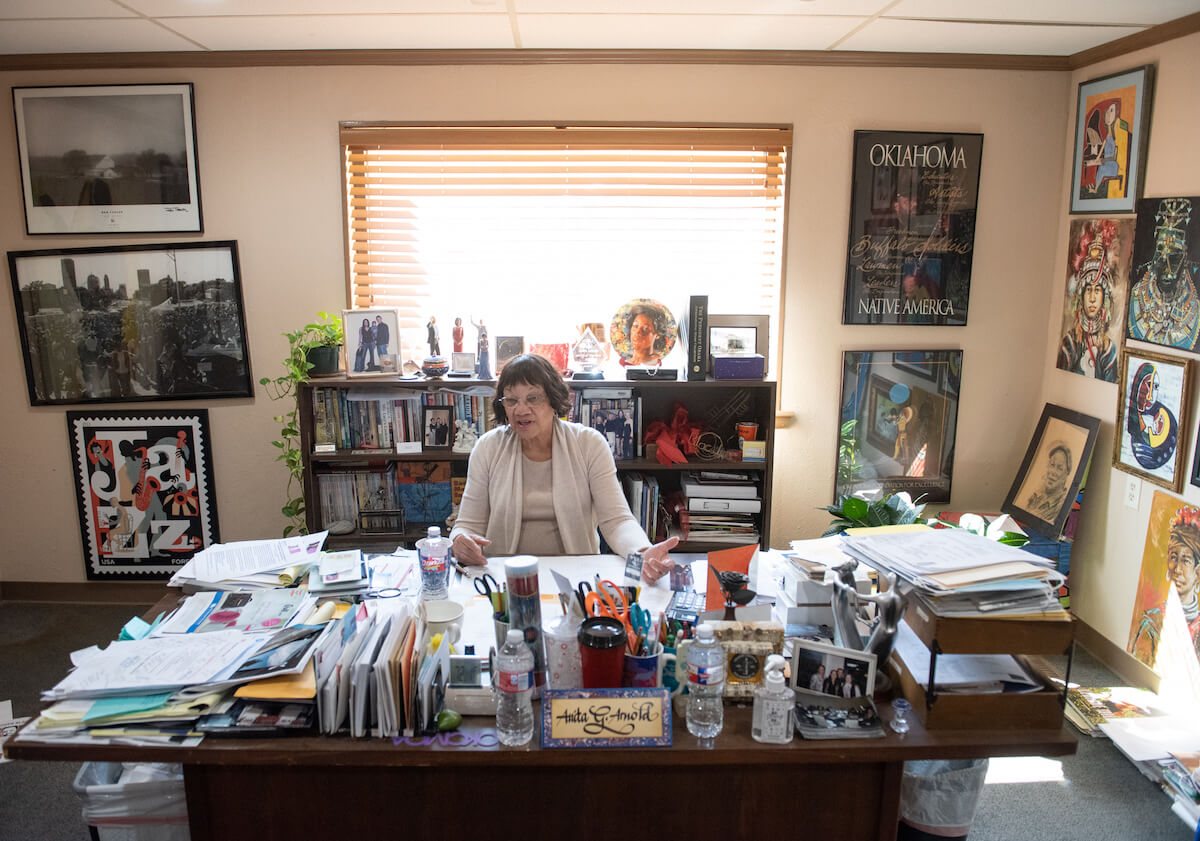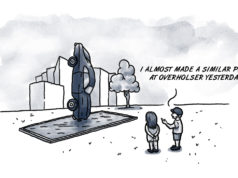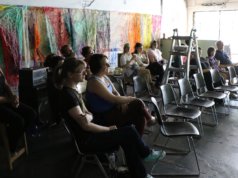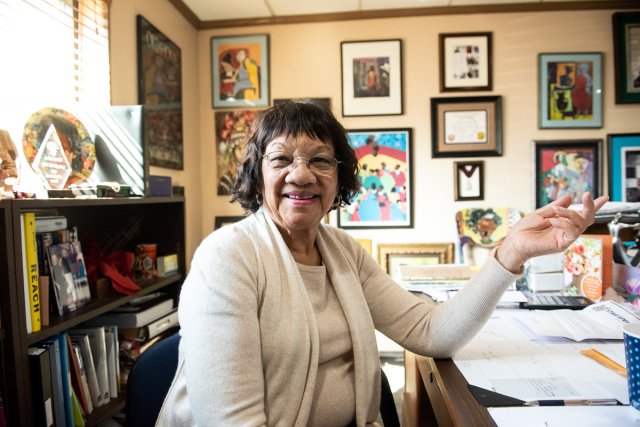
Anita Arnold’s office is cluttered, but not with junk. Her walls are covered in pieces by Black artists, and the floor features boxes filled to the brim with photo albums. Her desk holds old letters and her own writings.
Arnold is the executive director of Black Liberated Arts Center, or BLAC Inc., an Oklahoma City-based nonprofit focused on increasing the presence of the arts in the Oklahoma’s Black communities. It’s a role she has held for 29 years, during which she has been instrumental in promoting Black arts in the state, encouraging and promoting Black artists and bringing in finances to fund galleries and festivals.
Arnold, 80, came to BLAC after a career that included being the highest ranking Black woman at AT&T and the second-highest ranking woman in the United States Postal Service. But she came from what she calls “humble beginnings,” and her achievements were all hard earned. Arnold is a writer and a traveler of the world who has opened doors for those who have come behind her.
Her story is also the story of Black women’s fight for rights and recognition. No matter what ladder she set out to climb, Arnold always approached the challenges before her with hope and courage and laid a path for others to do the same.
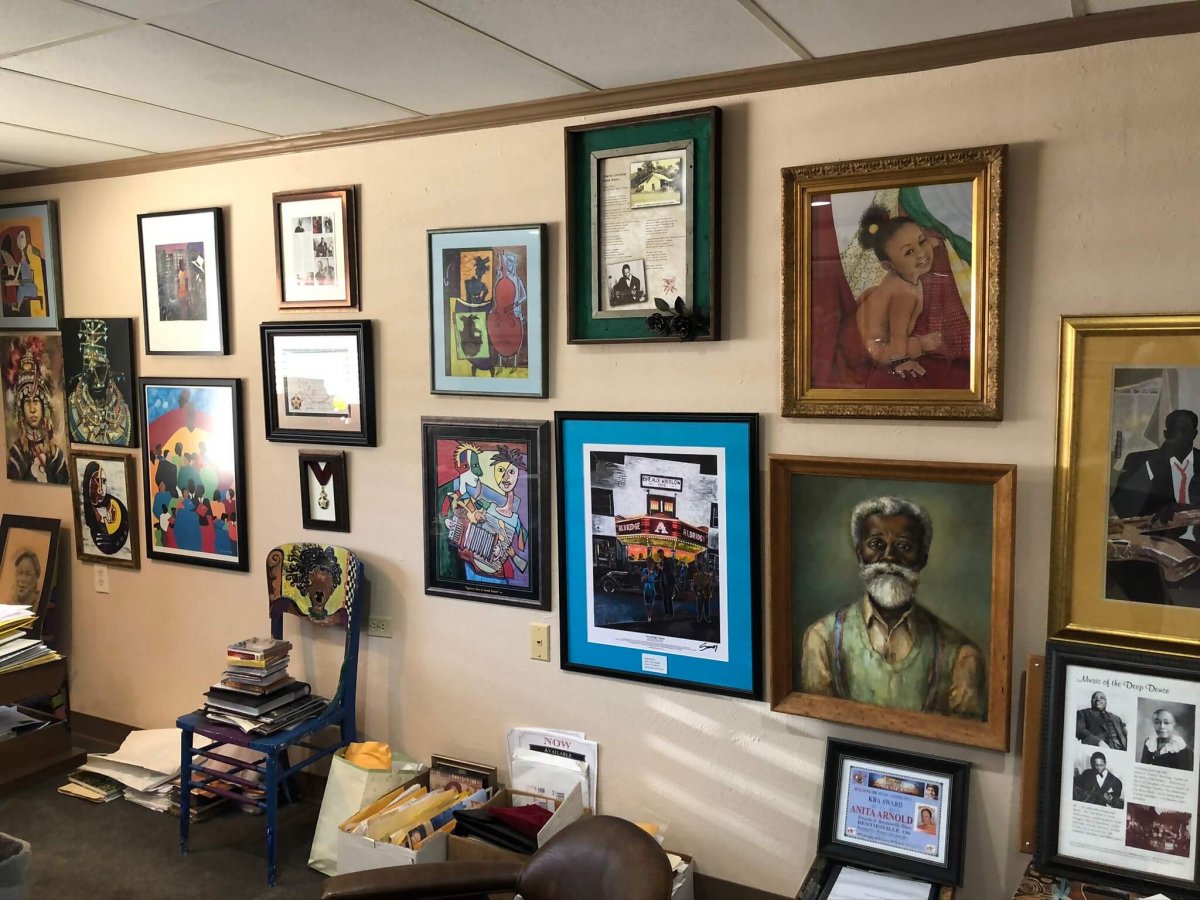
‘I grew up around courageous people’
Anita Arnold was born Dec. 22, 1939, and, until the age of 13, grew up with her grandparents on a farm outside Tecumseh. Her mother moved to Oklahoma City to find a job and, needing time to get on her feet, left Arnold with her grandparents, something Arnold said was common at the time.
She credits her determination and strength of character to the hard work she learned on the farm and particularly from her grandfather, whom she called “a steward in the community.”
“When I say I am very courageous, it’s because I grew up around courageous people,” Arnold said. “My grandfather was my role model, and he didn’t back down. He might have been slight in stature, but he believed in what he believed in. Right is right and wrong is wrong.”
Arnold particularly remembers an incident in which her grandfather confronted two white men who were stealing apples from his farm.
Brandishing a rifle, he warned the thieves, “You leave those apples right there, and I don’t want to ever catch you on this property again. If you were hungry, I would’ve fed you. All you had to do was ask. But that’s not what you did, so you resorted to stealing. If I catch you on my property again, I will shoot and I will shoot to kill.’”
No more apples came up missing.
“Some people are just scary when you confront the situation and are taken aback by your actions, because they weren’t expecting you to do that,” Arnold said. “If you make your case, if they’re smart, they would keep moving.”
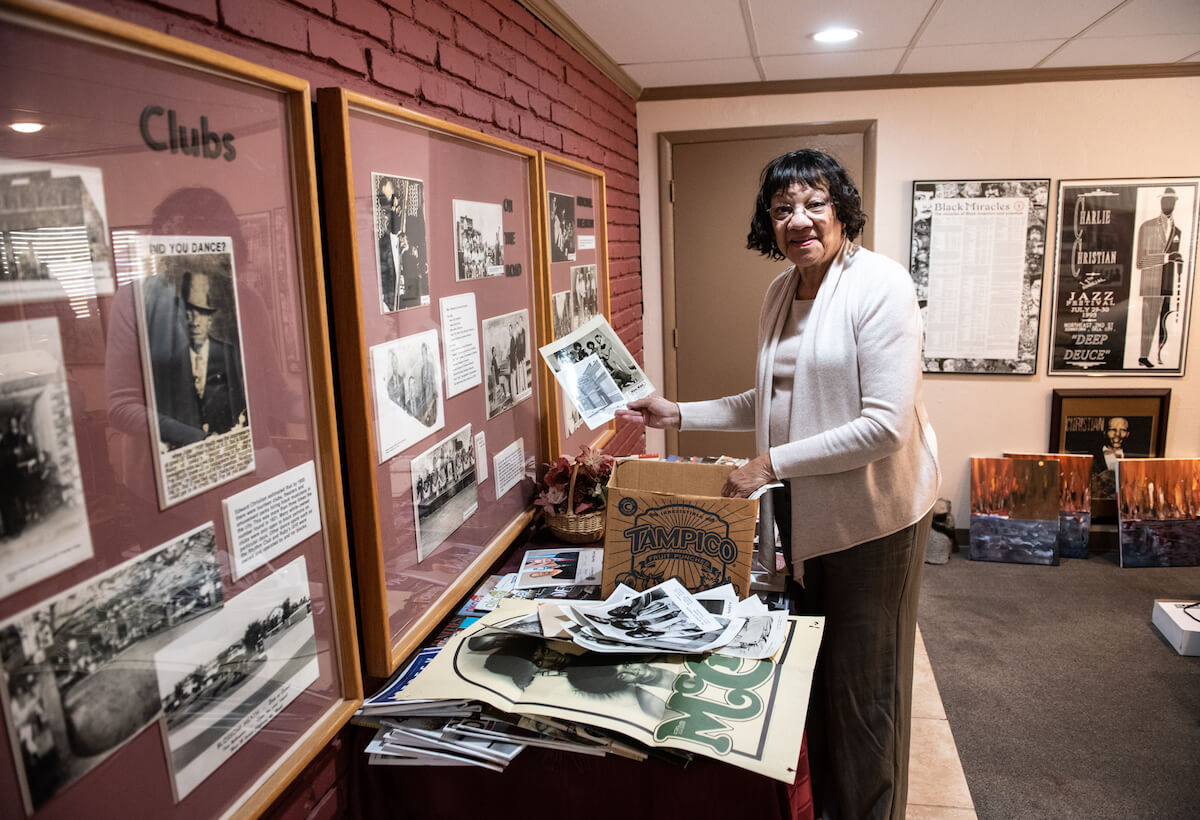
‘I’ve never had a problem speaking for myself’
It’s a lesson Arnold took with her into her career, where she soon learned that she would have to speak up and demand what was due her.
After Arnold’s grandmother died in 1952, Arnold moved to Oklahoma City to be with her mother. In 1957, she graduated from Douglass High School, where she said she excelled.
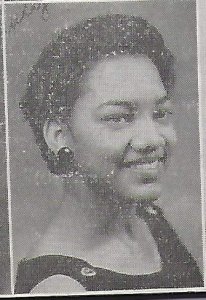
Oklahoma City University offered her a full scholarship, but she didn’t take it because she didn’t want to be on a campus with so few Black students. Instead, she went to Howard University, a historically black university in Washington, D.C.
Arnold met lifelong friends at Howard, but she wasn’t there for long. She dropped out after a semester because she didn’t like the strict rules the college had for freshmen women.
After leaving Howard, she wasn’t sure what she wanted to do. Arnold said she was told by counselors at Howard that she could be a teacher or a doctor — but neither option was appealing. She wanted to make money, but she also hated blood.
Arnold moved around the country a lot in her late 20s. In March of 1958, she married a man in the U.S. Air Force who was stationed at Tinker Air Force Base.
“That was the start of the travels then — living in other places,” Arnold said.
The couple moved to Sumter, South Carolina, then again to Memphis, where they divorced after 18 years together, during which they had three children. Along the way, Arnold discovered an interest in computer programming and eventually completed a degree in computer science and mathematics at Memphis State University.
But a key moment had occured in 1959, when she was 20 years old and she got an entry-level job at Western Electric, in New Jersey, working on the assembly line.
She hadn’t particularly wanted the job, but when she later mentioned where she worked to her doctor, a Black man, he was shocked. Black people were typically not hired at Western Electric.
Her doctor got her in contact with Nathaniel Johnson, the then-director of the Urban League in OKC, she said.
“‘We really wanna keep up with you, because this is bigger than you. You’re opening the door for Black folk,’” Arnold said her doctor told her.
But she disliked the assembly line work.
“Right after I started out there, I thought, ‘This right here is for the birds,’” she said. “Nathaniel Johnson said, ‘Anytime you get discouraged, don’t quit. Call me.’ How many times did I call him? Numerous times. Every time, he would remind me that this is bigger than me. And what I had to do. Because Black folk couldn’t get in out there. And I was opening the door.”
Opening doors for others has remained a theme throughout Arnold’s career, as has fighting for what she believes she is worth.
“I found that they really don’t expect you to have the nerve to come up to come to them and say what you want to them,” she said. “But I’ve never had a problem speaking for myself.”
Arnold’s career took her through many jobs and to several states. In 1974, she moved back to Washington, D.C. to take a job as the manager of the national information processing systems, real estate and buildings department in the U.S. Postal Service. In that job, she was responsible for creating and maintaining national database systems of inventory of all post offices in the nation. She was also the second-highest-ranked woman in the Postal Service during this time.
In 1980, Arnold went to AT&T, where she was a district manager, a position that made her the highest-ranking Black woman at the company. But she eventually took early retirement because she was tired of seeing people she believed to be less qualified promoted over her, she said.
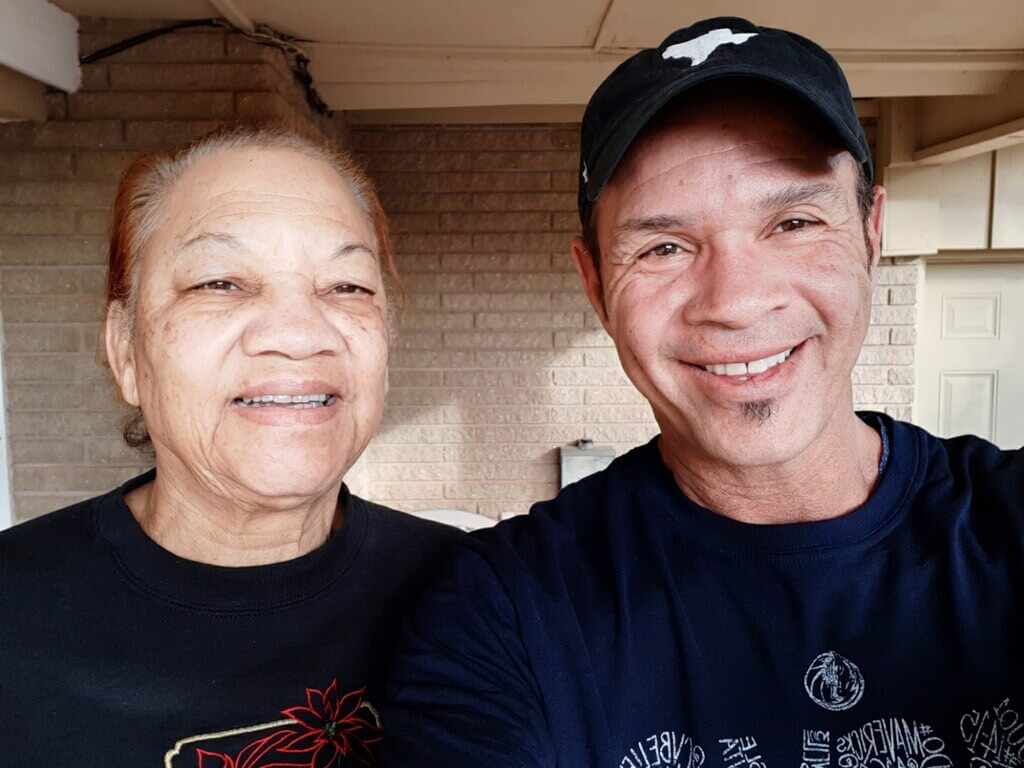
Nevertheless, her time at AT&T made a lasting impact. She was part of a group that put together a conference to discuss how to protect Black employees after the breakup of the Bell System. Before she left, she said, the company’s management also asked her to advise them on how to attract and retain Black employees.
Arnold’s son Chris, who works as the announcer for the Dallas Mavericks, remembered meeting the current Mavericks’ CEO, Cynt Marshall, who worked at AT&T shortly after Arnold left.
“When Cynt Marshall found out Anita Arnold was my mother, she just went crazy,” Chris Arnold said. “She said, ‘She opened the door for all of us.’”
‘We have history and we have culture’
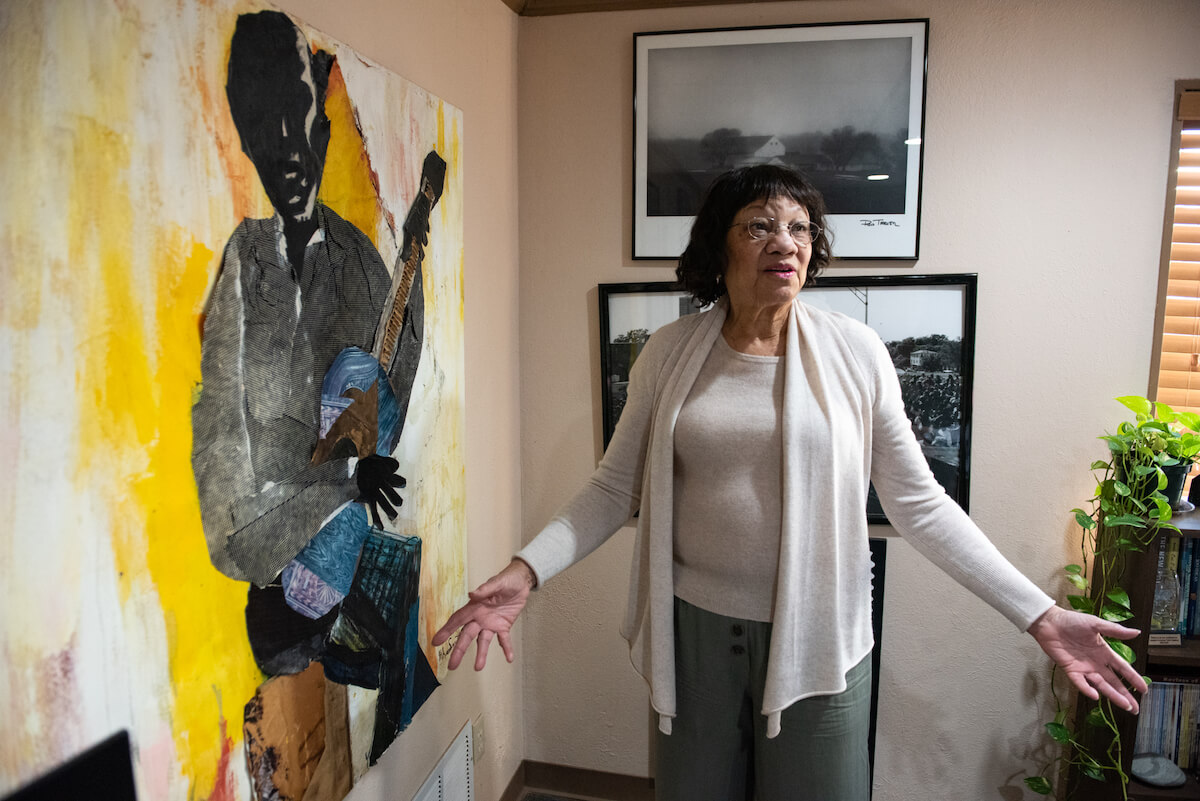
Arnold ultimately settled back home in Oklahoma in 1984 and started her own brokerage company, Argos Properties and Investment.
She first heard about BLAC in the early 1970s, when she was in Oklahoma City and saw a billboard on Martin Luther King Boulevard that said “BLAC: coming soon.” She was intrigued, and when she later found out what the organization was doing for the arts, she immediately knew she wanted to be a part of it one day.
“Oh, it was so exciting,” she recalled.
BLAC was founded in 1971 under the leadership of John Smith, a cellist who was the first Black person to play in the Oklahoma City Symphony.
Smith lost that job in 1969, when the symphony was having financial issues. Afterward, he worked at Langston University, Oklahoma’s only HBCU, and it was there that he had the idea for BLAC.
At the time, Arnold said, “Oklahoma (was taking) arts out of the schools. I guess that was frivolous stuff, they thought. Well that wasn’t the way [Smith] felt about it — he had strong feelings for the arts, especially music.”
So he put together a team and created BLAC, initially with the goal of bringing fine arts back to Douglass High School. Over the years, the organization’s mission expanded to a wider focus on promoting Black art in the city.
Arnold’s chance to be part of the organization’s work came in 1991, when she was offered the job of executive director.
“African Americans and Blacks — we are people — and we have history and we have culture,” Arnold said. “We have contributed to humanity, and the arts is one way of expressing that humanity.”
Under her leadership, BLAC has created art education programs, organized festivals, supported artists and worked to preserve Oklahoma City’s African American history by telling the stories of Black artists. During her time at BLAC, Arnold has also been involved in establishing awards in honor of Charlie Christian, Alfre Woodard and Ralph Ellison, among others.
Judy Cathon, who worked with Arnold on an Oklahoma City University committee to celebrate Ralph Ellison’s 100th birthday in 2014, described Arnold as someone with an “ability to get things done and move things forward.”
The photographer Ron Tarver, whose 2003 show Deep Deuce and Beyond was funded by BLAC using money Arnold brought in from the National Endowment for the Humanities, called Arnold “instrumental” in promoting Black art in the city. (Arnold has also written a book about Deep Deuce.)
Tarver is originally from Oklahoma but lives in Pennsylvania where he was a photojournalist for The Philadelphia Inquirer for 32 years. He credits Arnold and BLAC with helping him rediscover his home state.
“[I’m] getting more involved with it now,” Tarver said. “To be honest, when I was there, Oklahoma didn’t have an art scene.”
Arnold’s life has always been characterized by action. And now, as she sits in her quiet office, still working, she is surrounded by mementos of that life — reminders of where she’s been, who she is and of the footprints she has left behind for others to follow.
